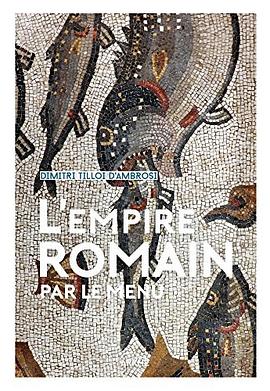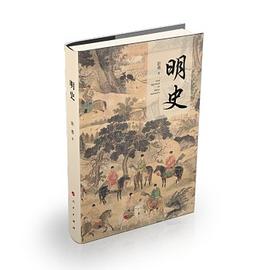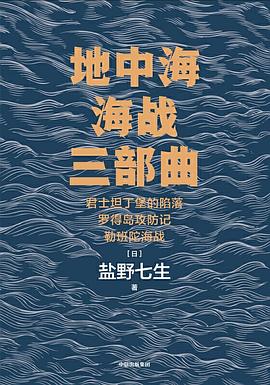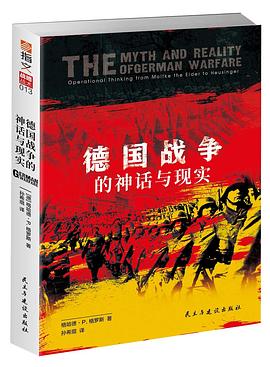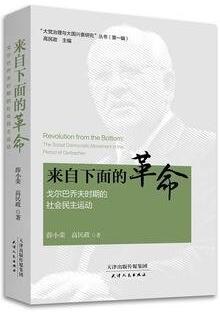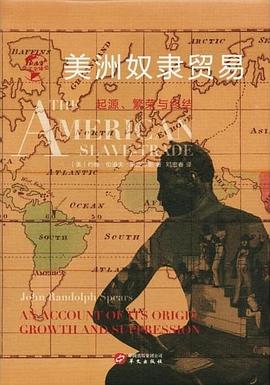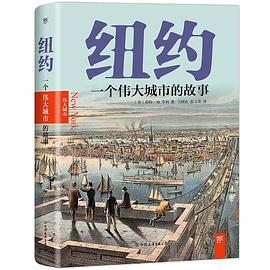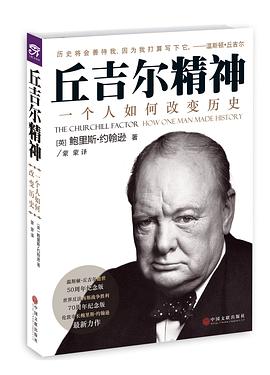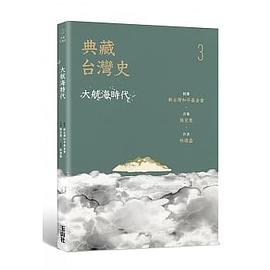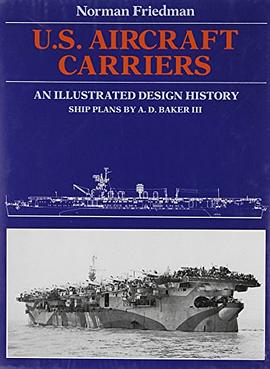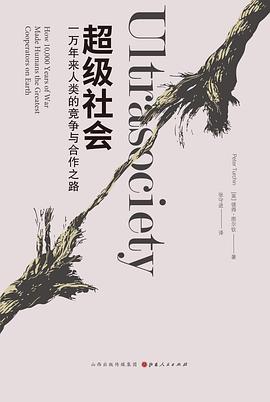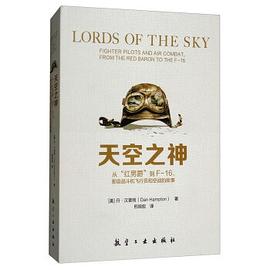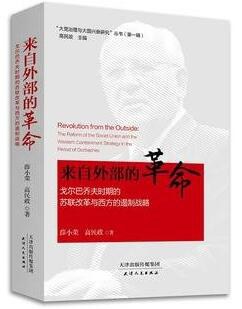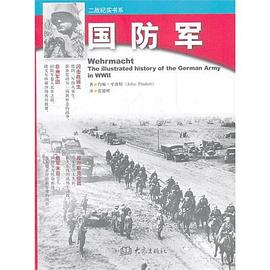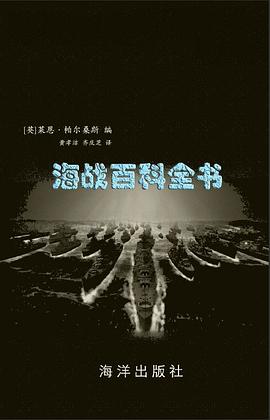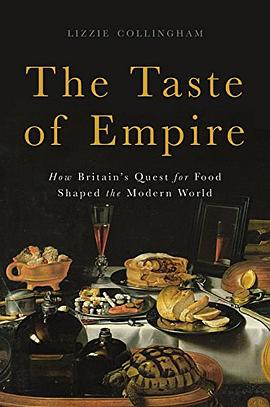

具体描述
A history of the British Empire told through twenty meals eaten around the world
In The Taste of Empire, acclaimed historian Lizzie Collingham tells the story of how the British Empire's quest for food shaped the modern world. Told through twenty meals over the course of 450 years, from the Far East to the New World, Collingham explains how Africans taught Americans how to grow rice, how the East India Company turned opium into tea, and how Americans became the best-fed people in the world. In The Taste of Empire, Collingham masterfully shows that only by examining the history of Great Britain's global food system, from sixteenth-century Newfoundland fisheries to our present-day eating habits, can we fully understand our capitalist economy and its role in making our modern diets.
Book of the Week on BBC Radio 4
"Lizzie Collingham's fascinating new book...demonstrates that a cup of tea is never just a cup of tea-it is a history of trade, exchange, land-grab, agricultural innovation and economic change...Marvelously wide-ranging and readable."
-Financial Times (UK)
"[Collingham] is exploring largely virgin territory. For centuries historical studies focused on political and social narratives. Until recently economics did not receive anything like its proper attention. Collingham seeks to redress the...omission...A wholly pleasing book."
-Sunday Times (UK)
"Revelatory...Collingham's book ranges widely to show how 'Britain's quest for food shaped the modern world.' An original and thought-provoking book and for all the shocking accounts of the consequences of British appetites, a highly entertaining one."
-The Times (UK)
"This is a wholly pleasing book, which offers a tasty side dish to anyone exploring the narrative history of the British Empire."
--Max Hastings, Sunday Times (UK)
"An original and thought-provoking book and for all the shocking accounts of the consequences of British appetites, a highly entertaining one."
--The Times (UK)
"Lizzie Collingham's fascinating new book, The Taste of Empire, demonstrates that a cup of tea is never just a cup of tea--it is a history of trade, exchange, land-grab, agricultural innovation and economic change.... This is a marvelously wide-ranging and readable book, stuffed with engaging details and startling connections."
--Financial Times
"This ingeniously constructed history shows that what we think of as personal appetites have largely been constructed by the machinations of empire. The Taste of Empire uses vivid snapshots of meals to tell the story of how Britain's quest for food drove its imperial ambitions. Collingham takes the reader on a powerful journey ranging from the sugary tea of Great Britain to the rum punch of Boston. Like Sidney Mintz or Margaret Visser, Collingham is a historian whose writing about food informs larger stories about human existence: about conflict and culture, about economics and politics. I was dazzled by Collingham's writing and her book also left me very hungry."
--Bee Wilson, author of First Bite
"The Taste of Empire has a hidden history: the menu, and how it changed the world. Lizzie Collingham has uncovered an epic that runs from domestic comedy to horror to the startling shifts that brought rice to America, maize to Africa, and tea to India. She makes it absorbing and utterly readable, mixing the huge economic story with exact and fascinating glimpses into past lives. You'll never see a biscuit tin the same way once you know how they were used in the Zulu Wars."--Michael Pye, author of The Edge of the World
"Beyond gold and glory, an insatiable lust for foreign foods drove the juggernaut of British imperialism. So shows Lizzie Collingham in this rich economic history, drawing on annals military, mercantile and domestic to reveal the complex routes along with the fruits of the colonial fields and fisheries were shunted into Britain's dining rooms."
--Nature
作者简介
Lizzie Collingham is an associate fellow at the University of Warwick. The author of three books, including The Taste of War and Curry, Collingham lives in Cambridge, United Kingdom.
目录信息
读后感
第一日 刚拿到手的时候,buling buling的封面和硬精装的装帧让人心生欢悦,幻想着随作者开始一场如装帧般梦幻的探险之旅。 第二日 第三章:美洲食物的优越性在独立战争期间美国士兵的身高上得到了体现,那时他们比对应的英国人平均高出三点五英尺。 嗯嗯。。 3.5英尺,四舍五入...
评分作为一本以食物为线索的历史读本,《饥饿帝国》并不是一本有很强学术性的历史学著作,它更多的还是一本科普的通识读物,不会“难读”。一本历史学的研究著作以食物为主题,谈不上“诡异”,甚至还是大家喜闻乐见的。从生活的基础“食物”入手,史学或许可以是每个人都能感知到...
评分这本书真的蛮有意思的,从来没有想过还能从吃的角度去回溯历史节点,但转念一想,无论是人类还是动物,获取食物都是生存的第一要旨。 每一章既是一道菜,更是一段历史,食物在这其中扮演了重要的角色。 但是,这本书除了吃的,其他的也的确没有什么更多的信息了。 翻来翻去,倒...
评分2012年冬天,我在伦敦念书。无数个月黑风高啃书夜里,捧着一杯加了奶的浓茶,遥想东方美食——火锅烧烤酸辣粉、虾饺云吞奶黄包。所谓去国怀乡之思,莫此为甚。 彼时和西班牙室友常常讨论一个话题,大英帝国赫赫威名,为何除了炸鱼薯条和司康,再也没有值得称道的食物留传给后世...
用户评价
这本书的封面设计就足够吸引人,那是一种沉静而又充满历史厚重感的视觉语言,让人在拿到它的时候,就仿佛预感到一场跨越时空的探索即将展开。书名《The Taste of Empire》本身就带着一种引人遐思的意味,它不仅仅是指味觉上的体验,更是一种文化、一种生活方式,甚至是权力与征服的具象化。我一直对历史如何通过日常生活的细微之处得以展现着迷,而这本书似乎正是这样一本能够深入肌理,挖掘那些被宏大叙事所掩盖的真实触感的作品。想象一下,在那些繁复的宫廷宴席上,在异域的市井街头,在殖民者与被殖民者之间的每一次食物交换,背后都蕴含着多少不为人知的故事,多少权力的博弈,多少文化的融合与冲突。这本书能否将这些元素巧妙地编织在一起,通过“味道”这一最直接也最感性的载体,为我们描绘出一幅幅生动而深刻的帝国画卷?我非常期待它能带我走进那些历史深处,去品味那些早已消逝在时间长河中的滋味,去理解那些味道背后所承载的深刻含义。它是否能够颠覆我们对帝国历史的固有认知,让我们从一个全新的角度去审视那些曾经辉煌又复杂的文明?光是想到这一点,就足以让人迫不及待地想要翻开它,跟随作者的笔触,开始这场感官与思想的双重盛宴。
评分这本书的书名《The Taste of Empire》立刻勾起了我的好奇心。我一直认为,要真正理解一个文明,尤其是像帝国这样复杂而又影响深远的实体,就不能仅仅停留在历史事件的表面,而需要深入到其日常生活的方方面面,而食物,无疑是其中最能触及灵魂的部分。设想一下,那些古老的香料之路,它们是如何铺就了帝国的贸易网络,又如何将遥远的文明紧密地联系在一起?那些殖民地的土地上,新引进的作物如何改变了当地的饮食习惯,又如何影响了人们的生活方式?甚至,统治者如何利用特定的食物来象征其权力、地位和文化优越性?我期待这本书能够带领我穿越时空的界限,去探索这些“味道”背后的故事。它是否能够揭示出,在那些看似平静的餐桌上,隐藏着怎样的权力结构和文化认同的博弈?它是否能够通过对食物的细致描绘,让我们感受到那些曾经辉煌的帝国,其兴衰更替的痕迹?我希望这本书能够不仅仅是一本关于食物的历史,更是一本关于人类文明发展、文化交流和身份建构的深刻探讨。它应该能够让我从一种全新的、更贴近生活的角度,去理解那些宏大的历史概念,去感受那些曾经存在过的,却又早已消逝的“帝国的味道”。
评分《The Taste of Empire》这个书名,在我脑海中描绘出了一幅幅生动的画面。它让我联想到那些曾经横跨大陆的商队,驮着芬芳的香料,穿越重重阻碍,最终抵达帝国的中心。我想象着,这些香料如何在宫廷的宴席上,在贵族的餐桌上,扮演着怎样的角色?它们是身份的象征,是财富的展示,还是权力运作的媒介?又或者,这些“味道”是如何被那些被征服的民族所接受,又如何被他们所改造,从而形成一种独特的、融合了多重文化的风味?我期待这本书能够深入挖掘这些“味道”背后的故事,不仅仅是食材的来源和烹饪的方式,更重要的是,它能否揭示出这些味道是如何与帝国的政治、经济、文化以及社会结构紧密相连的。它是否能够帮助我们理解,在那些看似日常的饮食习惯中,隐藏着怎样的权力博弈?在那些跨越海洋的贸易路线中,又承载着怎样的文明碰撞?我希望这本书能够提供一种全新的视角,让我们不仅仅是从宏观层面去认识帝国,更能从微观的、个体的、甚至感官的体验出发,去感受那个时代的脉搏,去理解那些曾经塑造了世界的庞大力量。
评分《The Taste of Empire》这个书名,本身就充满了引人入胜的张力。它将抽象的政治概念“帝国”与具象的感官体验“味道”巧妙地结合在一起,让我不禁开始想象,那些曾经统治世界的庞大实体,它们的“味道”究竟是如何的?是香料的芬芳,是远方食材的独特风味,还是不同文化在餐桌上的碰撞与融合?我期待这本书能够深入挖掘食物在帝国扩张、文化交流和权力巩固中所扮演的角色。它是否能够展现出,那些遍布全球的贸易网络,是如何通过食物的流通,将不同的文明紧密地联系在一起?它是否能够揭示出,在那些宏大的历史事件背后,普通人的餐桌上又发生了怎样的变化?我希望这本书能够提供一种全新的视角,让我能够从一种更具象、更贴近生活的角度,去理解和感受那些曾经塑造了世界的帝国,它们的兴衰更替,它们的辉煌与代价。它是否能够让我,通过“味道”,触摸到历史的脉搏,感受到那个时代人们的情感与记忆?
评分从拿到这本书的那一刻起,我的思绪就被它的主题深深吸引。帝国,一个庞大而充满力量的词汇,它象征着扩张、征服,也伴随着文化交流、技术传播,以及随之而来的身份认同的重塑。而“Taste”,这个看似简单却又极其丰富的词语,却能将如此宏大的历史概念具象化,赋予其鲜活的生命力。作者是如何将“味道”这一概念,与“帝国”这个宏观的政治、经济、军事实体联系起来的?是香料的贸易路线,是新旧大陆之间食物的交换,还是统治者为了巩固权力而推广的饮食文化?我脑海中浮现出无数的可能性,比如那些远渡重洋的航海家,他们带回的不仅仅是财富,更是陌生的食材和烹饪技艺;又比如那些被征服的土地上,原有的饮食习惯是如何受到入侵者影响,又或是如何顽强地抵抗着外来的改变。这本书是否能够通过对食物的深入剖析,展现出帝国扩张过程中,不同文化之间的碰撞、融合与妥协?它是否能够让我们看到,在那些宏伟的战役和政治决策之外,普通人在食物的选择和传承中,所经历的喜悦、苦痛和变化?我希望它能提供一种全新的视角,让我们不仅是观察历史的进程,更能“品尝”到历史的味道,感受到历史的脉搏。
评分拿到《The Taste of Empire》这本书,我首先就被其书名所传达出的意境所吸引。这是一种将抽象的政治实体与具象的感官体验相结合的绝妙构思,仿佛能够触及到历史最柔软也最深刻的肌理。一个帝国,它的版图扩张、它的军事力量、它的政治制度,固然是研究的重点,但如果能够从“味道”这个角度去审视,将会是怎样一番别样的景象?我想象着,那些来自遥远国度的香料,是如何被运送到帝国的中心,又如何被用来调味贵族的盛宴,或是成为普通民众生活中不可或缺的一部分。我想象着,在殖民地的土地上,来自宗主国的作物如何被引进,又如何与当地的食材发生化学反应,孕育出全新的风味。这本书是否能够通过对这些“味道”的追溯,揭示出帝国扩张的经济动因,文化渗透的机制,甚至是权力关系的微妙之处?它是否能够让我们看到,在那些被历史记录下来的宏大事件背后,普通人的饮食习惯是如何悄然改变,他们的味蕾是如何承载着时代的变迁?我期待这本书能够为我打开一扇新的窗户,让我能够以一种更立体、更感性的方式,去理解和感受那些曾经统治世界的庞大帝国,它们的兴盛与衰落,它们的辉煌与代价。
评分《The Taste of Empire》这个书名,仿佛一把钥匙,瞬间打开了我对历史的另一种探索模式。我一直认为,宏大的历史叙事固然重要,但真正能触动人心的,往往是那些隐藏在细节中的点滴。而食物,恰恰是这些细节中最具象、最能承载情感和文化的部分。一个帝国,它的崛起和扩张,必然伴随着物质和文化的交流。这些交流,又如何体现在人们的餐桌上?我设想,那些遥远的香料,如何穿越千山万水,成为帝国奢华的象征,或是普通民众生活中的一点调剂?那些被征服的土地上,原有的食材和烹饪方式,又如何与入侵者的习俗发生碰撞,融合,甚至对抗?这本书是否能够通过对“味道”的深入挖掘,来展现出帝国统治下的社会变迁、经济活动,以及不同文化之间的复杂互动?我期待它能够超越单纯的食材介绍,而是能够将食物置于历史的宏观框架下,去解读它所承载的权力、身份、文化和记忆。它是否能够让我透过食物,看到一个帝国真实的肌理,感受到那个时代人们生活的酸甜苦辣,以及那些曾经统治世界的庞大力量,它们是如何通过味道,渗透到生活的方方面面,并最终留下了深深的印记?
评分这本书的书名《The Taste of Empire》瞬间就吸引了我。我一直认为,历史的宏大叙事往往会忽略掉一些最贴近人们生活的细节,而食物,无疑是其中最能体现文化交流、权力变迁和生活方式改变的载体。一个帝国,它的版图扩张、它的经济渗透,都必然会深刻地影响到人们的饮食习惯。我期待这本书能够带领我进入那些历史的深处,去探寻那些“味道”的起源和演变。想象一下,那些远渡重洋的船队,不仅仅带来了财富和技术,更带来了陌生的食材和烹饪技艺,它们如何被本土的文化所吸收,又如何激发出新的风味?那些被征服的土地上,原有的饮食传统又如何与统治者的文化发生碰撞?这本书是否能够通过对食物的细致描绘,来揭示出隐藏在帝国扩张背后的经济逻辑、文化策略,甚至是权力运作的微妙之处?我希望它能让我不仅仅是了解历史事件,更能“品尝”到那个时代的风味,感受到不同文化之间的交融与对抗,从而对帝国这一概念产生更深刻、更立体的理解。
评分这本书的封面设计给我一种沉静而又充满力量的感觉,仿佛一本古老的史书,又带着些许神秘的色彩。书名《The Taste of Empire》更是瞬间抓住了我的目光,它以一种极其新颖而又深刻的方式,将宏观的历史概念与微观的感官体验联系起来。我一直认为,要真正理解一个文明,就不能仅仅停留在政治、军事等层面,而需要深入到它的日常生活中,而食物,无疑是其中最能体现文化交流、身份认同和权力关系的载体。我迫不及待地想知道,作者是如何通过“味道”这一线索,来解读和呈现庞大的帝国历史的。那些跨越海洋的香料贸易,那些新旧大陆之间食材的交换,那些统治者为了巩固权力而推行的饮食文化,它们背后又隐藏着怎样的故事?这本书是否能够让我感受到,在那些曾经辉煌的帝国扩张过程中,食物是如何扮演着关键的角色,如何影响着经济、文化和人们的生活?我期待它能够为我打开一扇新的窗口,让我能够以一种更立体、更感性的方式,去理解那些曾经统治世界的庞大力量,去品味那些早已消逝在历史长河中的,“帝国的味道”。
评分当我第一眼看到《The Taste of Empire》这本书的书名时,一种强烈的求知欲便油然而生。这不仅仅是一本关于历史的书,更是一本关于文化、关于交流、关于征服与被征服的故事。我一直认为,食物是了解一个文化最直接、最深刻的途径,而“帝国”这个词汇,则代表着一种规模庞大、影响深远的文明体。那么,当“味道”遇上“帝国”,将会产生怎样奇妙的化学反应?我脑海中立刻浮现出无数的画面:远航的船队带着异域的食材,改变着本土的烹饪方式;殖民者将自己的饮食习惯带到新大陆,与当地的食材碰撞出新的火花;甚至是统治者如何利用特定的食物来巩固统治,或者通过推广某种饮食文化来象征其权威。这本书是否能够带领我穿越时空,去品尝那些早已消逝在历史长河中的味道?它是否能够揭示出,在那些看似微不足道的食材和烹饪技巧背后,隐藏着怎样的权力游戏、经济利益和文化交流?我期待它能提供一种全新的视角,让我能够从一种更具象、更感性的方式,去理解那些宏大而复杂的帝国历史,去感受那些曾经存在过的,却又早已融入我们现代生活中的“帝国的味道”。
评分帝国的食物史。把食物作为切入英帝国历史的角度,从具体的食材或者菜肴牵扯出帝国扩张的大趋势和帝国对殖民者和被殖民者口味的塑造。有很多好玩的细节,可以解释很多之前的疑问。有一个观点很有意思,英国工人阶级喝茶并不是为了喝茶,而是为了喝糖获取廉价的热量,很多时候茶叶就是给糖水染个色...另外也好奇中文版是怎么处理鸦片战争那一节的,按作者在书里的说法,鸦片贩子卖完鸦片之后都去广州东印度公司洋行里把白银换成汇票,方便在伦敦体现或者在印度继续贸易,这些白银又被用来购买中国茶和丝,所以鸦片贸易虽然在账目上扭转了东印度公司对华贸易逆差,但是实际上没有造成白银的大规模外流。
评分帝国的食物史。把食物作为切入英帝国历史的角度,从具体的食材或者菜肴牵扯出帝国扩张的大趋势和帝国对殖民者和被殖民者口味的塑造。有很多好玩的细节,可以解释很多之前的疑问。有一个观点很有意思,英国工人阶级喝茶并不是为了喝茶,而是为了喝糖获取廉价的热量,很多时候茶叶就是给糖水染个色...另外也好奇中文版是怎么处理鸦片战争那一节的,按作者在书里的说法,鸦片贩子卖完鸦片之后都去广州东印度公司洋行里把白银换成汇票,方便在伦敦体现或者在印度继续贸易,这些白银又被用来购买中国茶和丝,所以鸦片贸易虽然在账目上扭转了东印度公司对华贸易逆差,但是实际上没有造成白银的大规模外流。
评分帝国的食物史。把食物作为切入英帝国历史的角度,从具体的食材或者菜肴牵扯出帝国扩张的大趋势和帝国对殖民者和被殖民者口味的塑造。有很多好玩的细节,可以解释很多之前的疑问。有一个观点很有意思,英国工人阶级喝茶并不是为了喝茶,而是为了喝糖获取廉价的热量,很多时候茶叶就是给糖水染个色...另外也好奇中文版是怎么处理鸦片战争那一节的,按作者在书里的说法,鸦片贩子卖完鸦片之后都去广州东印度公司洋行里把白银换成汇票,方便在伦敦体现或者在印度继续贸易,这些白银又被用来购买中国茶和丝,所以鸦片贸易虽然在账目上扭转了东印度公司对华贸易逆差,但是实际上没有造成白银的大规模外流。
评分帝国的食物史。把食物作为切入英帝国历史的角度,从具体的食材或者菜肴牵扯出帝国扩张的大趋势和帝国对殖民者和被殖民者口味的塑造。有很多好玩的细节,可以解释很多之前的疑问。有一个观点很有意思,英国工人阶级喝茶并不是为了喝茶,而是为了喝糖获取廉价的热量,很多时候茶叶就是给糖水染个色...另外也好奇中文版是怎么处理鸦片战争那一节的,按作者在书里的说法,鸦片贩子卖完鸦片之后都去广州东印度公司洋行里把白银换成汇票,方便在伦敦体现或者在印度继续贸易,这些白银又被用来购买中国茶和丝,所以鸦片贸易虽然在账目上扭转了东印度公司对华贸易逆差,但是实际上没有造成白银的大规模外流。
评分帝国的食物史。把食物作为切入英帝国历史的角度,从具体的食材或者菜肴牵扯出帝国扩张的大趋势和帝国对殖民者和被殖民者口味的塑造。有很多好玩的细节,可以解释很多之前的疑问。有一个观点很有意思,英国工人阶级喝茶并不是为了喝茶,而是为了喝糖获取廉价的热量,很多时候茶叶就是给糖水染个色...另外也好奇中文版是怎么处理鸦片战争那一节的,按作者在书里的说法,鸦片贩子卖完鸦片之后都去广州东印度公司洋行里把白银换成汇票,方便在伦敦体现或者在印度继续贸易,这些白银又被用来购买中国茶和丝,所以鸦片贸易虽然在账目上扭转了东印度公司对华贸易逆差,但是实际上没有造成白银的大规模外流。
相关图书
本站所有内容均为互联网搜索引擎提供的公开搜索信息,本站不存储任何数据与内容,任何内容与数据均与本站无关,如有需要请联系相关搜索引擎包括但不限于百度,google,bing,sogou 等
© 2026 book.quotespace.org All Rights Reserved. 小美书屋 版权所有

